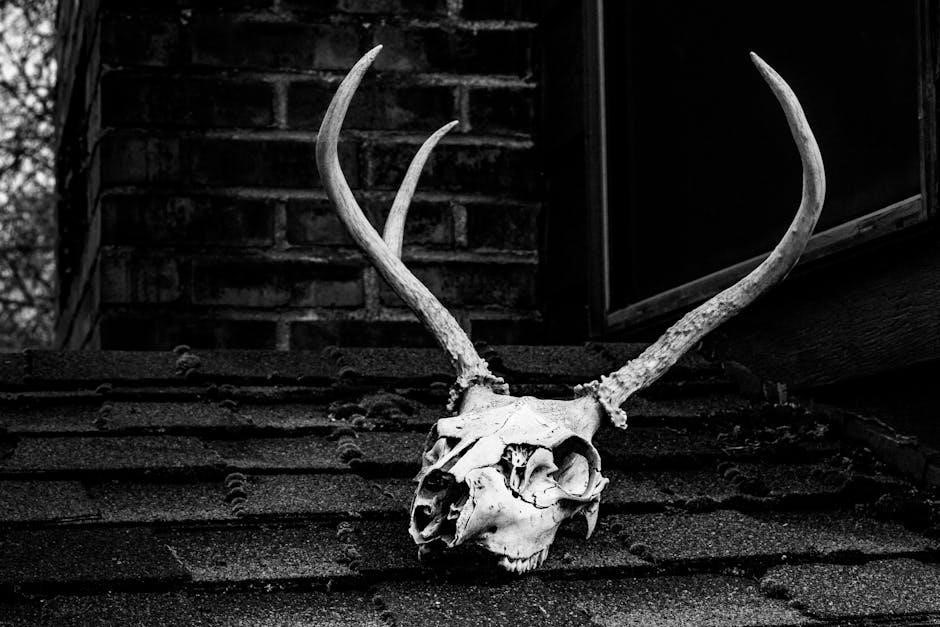
Wole Soyinka’s 1975 play, Death and the King’s Horseman, explores cultural clash and individual choice under British colonial rule in Nigeria. It centers on Elesin Oba, the King’s Horseman, destined to ritually follow his king into the afterlife, highlighting the tension between tradition and colonial intervention.
1.1 Overview of the Play
Death and the King’s Horseman by Wole Soyinka is a tragic play exploring the clash between Yoruba traditions and British colonial rule in Nigeria. The story revolves around Elesin Oba, the King’s Horseman, who must ritually commit suicide to honor his deceased king. However, his plans are disrupted by Simon Pilkings, a colonial officer, leading to a tragic confrontation. The play delves into themes of duty, cultural identity, and the devastating impact of colonialism, blending rich Yoruba traditions with the harsh realities of colonial interference.
1.2 Historical Context
The play is set in colonial Nigeria, specifically in the ancient Yoruba city of Oyo in 1946. This period marked significant colonial interference in traditional African practices. The death of the king and the subsequent rituals highlight the tension between Yoruba traditions and British colonial rule. Soyinka draws from historical events to examine the clash of cultures and the consequences of colonial intervention in sacred rituals, providing a vivid backdrop for the tragic events of the play.
1.3 Cultural Significance
Death and the King’s Horseman is a profound exploration of Yoruba cultural traditions and their confrontation with colonialism. The play highlights the importance of rituals, honor, and communal responsibility in Yoruba society. It underscores the sacred duty of the King’s Horseman and the communal expectation tied to it, reflecting broader themes of cultural identity and resilience. Soyinka’s work bridges traditional Yoruba beliefs with modern colonial realities, emphasizing the universal relevance of cultural heritage.
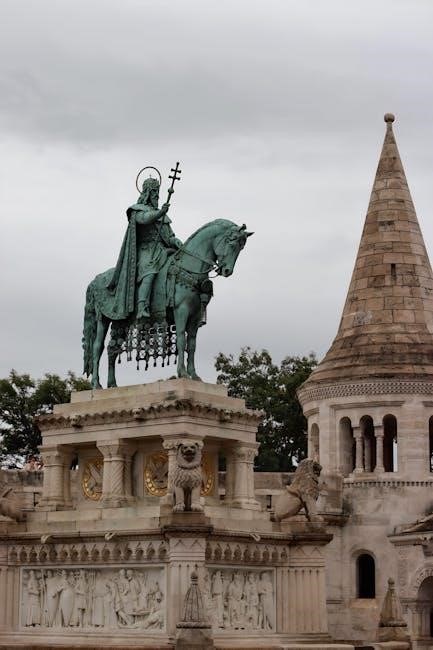
Plot Summary
The play revolves around Elesin Oba, the King’s Horseman, preparing for ritual suicide after the King’s death. However, the colonial officer Simon Pilkings intervenes, leading to tragic consequences.
2.1 The Ritual of the King’s Horseman
Elesin Oba, the King’s Horseman, is bound by Yoruba tradition to ritually commit suicide after the King’s death, ensuring the King’s safe passage to the afterlife. This sacred duty, steeped in cultural honor, is expected to be fulfilled without hesitation. The village prepares to honor Elesin, celebrating his resolve to uphold tradition. However, the ritual is interrupted by colonial forces, leading to a tragic confrontation that underscores the clash between tradition and colonial authority.
2.2 The Intervention of Colonial Forces
Colonial officer Simon Pilkings intervenes to prevent Elesin’s ritual suicide, driven by his own cultural biases and a misunderstanding of Yoruba traditions. Pilkings’ actions, though well-intentioned in his view, disrupt the sacred ritual, leading to Elesin’s failure to fulfill his duty. This intervention not only shames Elesin but also creates tension between the Yoruba community and colonial authorities, highlighting the clash of cultural values and the impact of colonialism on traditional practices.
2.3 The Tragic Confrontation
The tragic confrontation unfolds as Elesin Oba, the King’s Horseman, is prevented from fulfilling his ritual suicide by colonial officer Simon Pilkings. This intervention disrupts the sacred Yoruba tradition, leading to Elesin’s failure to honor his king and ancestors. The confrontation highlights the profound cultural misunderstanding and the imposition of colonial values over indigenous customs.
The event results in Elesin’s public shame and the community’s outrage, underscoring the destructive impact of colonial interference on traditional practices and cultural identity.
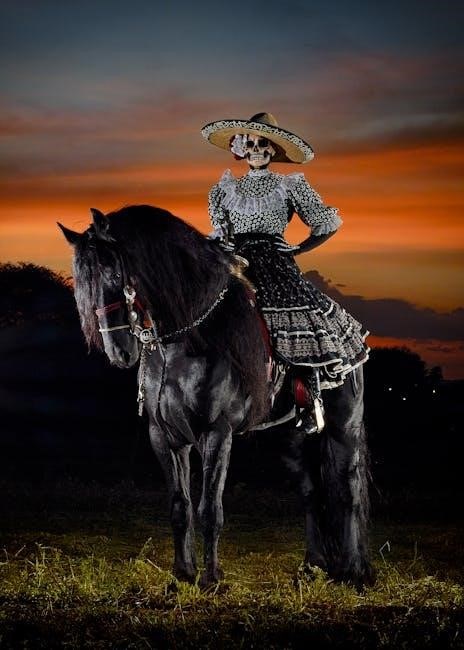
Main Characters
Elesin Oba, the King’s Horseman, is bound by tradition to follow his king into the afterlife. Simon Pilkings, the colonial officer, disrupts this sacred duty, while the Praise Singer and villagers embody cultural values.
3.1 Elesin Oba: The King’s Horseman
Elesin Oba, the King’s Horseman, is a man deeply rooted in tradition and duty. His role demands ritual suicide to guide the deceased king to the afterlife, a duty he initially embraces. However, his encounter with a young bride awakens personal desires, creating inner conflict. His failure to fulfill the ritual, due to colonial intervention, leads to tragic consequences, highlighting the clash between cultural obligation and external forces. Elesin’s journey reflects the tension between honor, tradition, and individual will.
3.2 Simon Pilkings: The Colonial Officer
Simon Pilkings, the British colonial officer, represents the imposing force of colonial rule. His intervention to prevent Elesin’s ritual suicide stems from a misguided sense of cultural superiority and moral duty. Pilkings views African traditions as barbaric, justifying his interference. However, his actions reveal a deep misunderstanding of Yoruba beliefs, leading to a tragic cultural clash. His character symbolizes the disruptive impact of colonialism on indigenous traditions and the arrogance of imperial authority. Pilkings’ actions drive the play’s central conflict and its devastating outcome.
3.3 The Praise Singer and Other Villagers
The Praise Singer and villagers play a crucial role in upholding Yoruba traditions and supporting Elesin’s journey. The Praise Singer narrates Elesin’s story, emphasizing his duty and honor. Villagers gather to honor Elesin, reflecting communal respect for their cultural practices. Their collective presence underscores the societal expectation of Elesin’s ritual suicide. However, their reactions to Pilkings’ intervention reveal a mix of fear and defiance, highlighting the community’s struggle to maintain their identity against colonial interference, thus enriching the play’s cultural and emotional depth.

Themes and Analysis
The play explores themes of cultural identity, duty, and colonial conflict, delving into the tension between tradition and modernity in a colonized society.
4.1 Duty vs. Individuality
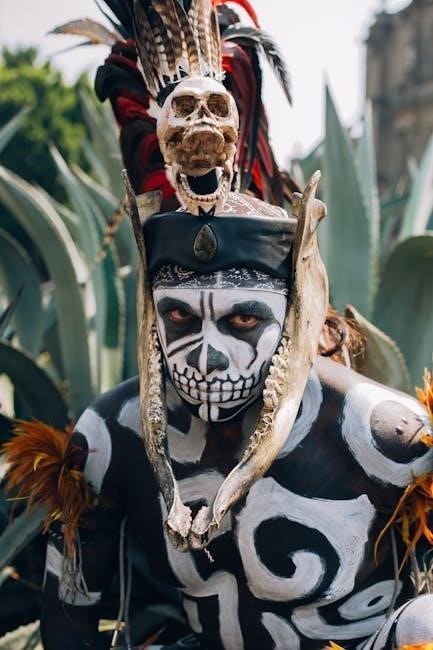
The play highlights the conflict between societal duty and personal desire, as Elesin Oba, the King’s Horseman, is torn between ritual obligation and human frailty. His duty to follow the deceased king into the afterlife is central to Yoruba tradition, yet his attraction to a young woman and the colonial intervention led by Pilkings challenge this sacred responsibility. Soyinka explores how individual will confronts collective expectations, reflecting broader tensions between tradition and modernity in a colonized society.
4.2 Clash of Cultures
The play vividly portrays the clash between Yoruba traditions and British colonial values. The intervention of Simon Pilkings, a colonial officer, disrupts Elesin’s ritual suicide, symbolizing the broader cultural conflict. Soyinka illustrates how colonial authority disregards indigenous beliefs, leading to a tragic confrontation. This clash underscores the tension between preserving cultural identity and the imposition of foreign norms, highlighting the destructive nature of colonialism on traditional societies.
4.3 The Impact of Colonialism
The play critiques colonialism’s disruptive influence on indigenous traditions. Simon Pilkings’ interference in Elesin’s ritual underscores the broader impact of colonial rule, which often dismissed or suppressed local customs. The British authorities’ intervention not only disrupted the Yoruba burial rites but also exposed the tension between cultural preservation and colonial domination. This clash highlights the tragic consequences of imposing foreign values on deeply rooted traditions, ultimately leading to the erosion of cultural identity and personal dignity.
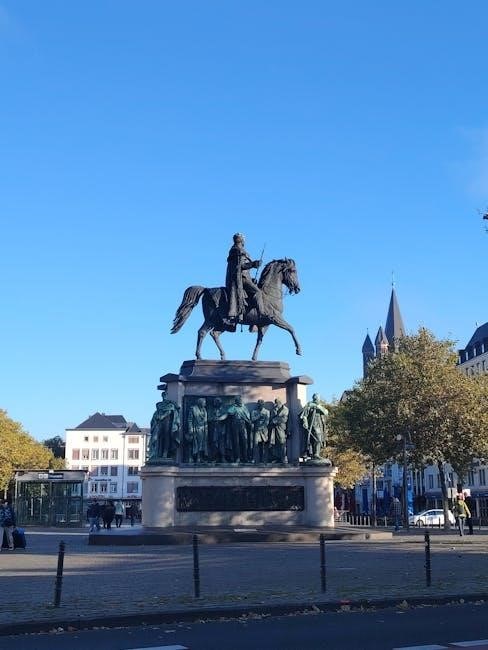
Symbolism in the Play
The play uses symbols like Esu, the divine messenger, and rituals to represent cultural identity and the clash between tradition and colonialism, highlighting deeper spiritual themes.
5.1 The Role of Esu, the Divine Messenger
Esu, the divine messenger in Yoruba tradition, symbolizes the bridge between the mortal world and the afterlife. In Death and the King’s Horseman, Esu embodies the complexities of fate and divine will. His role is pivotal as he facilitates communication between the ancestors and the living, reflecting the spiritual dimensions of the play. Esu’s presence underscores the inevitability of destiny and the interconnectedness of life and death, highlighting the cultural and metaphysical themes central to the narrative. His fiery horse and transformative abilities further emphasize his divine authority and the cosmic balance he maintains. Through Esu, Soyinka illustrates the resilience of Yoruba spirituality amidst colonial disruption, making him a powerful symbol of cultural preservation and divine order. The character’s multifaceted nature allows for a deeper exploration of the play’s themes, such as duty, tradition, and the clash of cultures.
5.2 The Significance of Rituals and Traditions
Rituals and traditions in Death and the King’s Horseman are central to Yoruba culture, emphasizing the belief in an afterlife and communal responsibility. Elesin’s duty to ritually follow his king symbolizes honor and cultural identity. These practices, however, clash with colonial values, leading to tragedy. The disruption of these rituals by British authorities highlights the destructive impact of colonialism on indigenous traditions, underscoring the struggle to preserve cultural heritage in a colonized society.
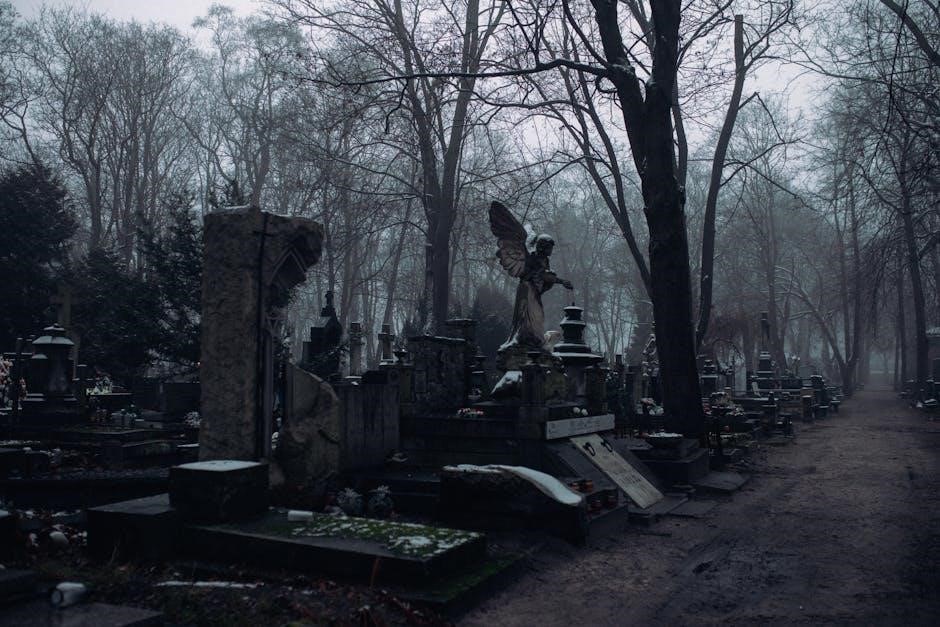
Historical Background
Set in 1946 Nigeria, the play explores the Yoruba King’s Horseman ritual and its conflict with British colonial rule and cultural transformations.
6.1 The Incident of 1946
The 1946 incident in Oyo, Nigeria, inspired the play. The King’s death led to Elesin’s obligation to ritually follow him, but British intervention disrupted this sacred Yoruba tradition, creating profound cultural and personal conflict. This historical event highlights the clash between colonial authority and indigenous customs, forming the play’s core drama.
6.2 Yoruba Traditions and Beliefs
Yoruba traditions emphasize communal harmony and spiritual balance. The belief in a metaphysical universe, with deities like Esu as messengers of the gods, underscores their cultural identity. Rituals, such as the King’s Horseman’s duty, are sacred, reflecting the people’s deep connection to their ancestors and the divine; These beliefs are central to the play, highlighting the resilience of Yoruba culture amid colonial disruption and its enduring relevance in preserving heritage.
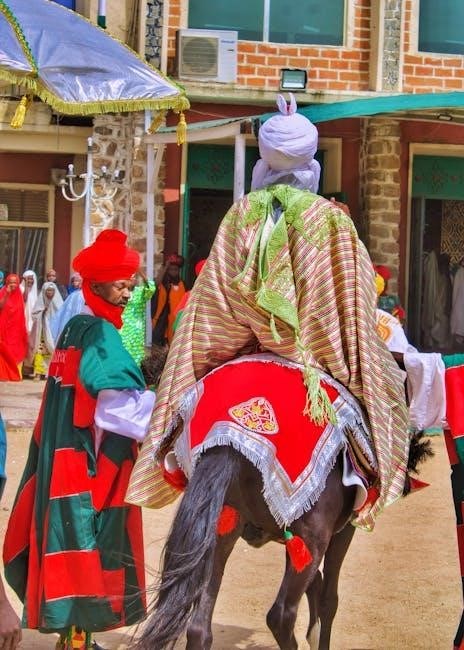
Critical Reception and Reviews
Wole Soyinka’s ‘Death and the King’s Horseman’ received critical acclaim upon its 1975 release, praised for its profound exploration of cultural identity and colonial conflict. Modern interpretations continue to highlight its relevance in contemporary discussions on tradition and modernity.
7.1 Initial Reception in 1975
Upon its release in 1975, Death and the King’s Horseman garnered significant attention for its bold exploration of cultural conflict and colonialism. Critics praised Soyinka’s ability to weave Yoruba traditions into a compelling narrative, highlighting the play’s universal themes. The work was seen as a powerful critique of colonial interference, resonating deeply with audiences. Its debut marked a pivotal moment in African literature, cementing Soyinka’s reputation as a leading voice.
7.2 Modern Interpretations and Adaptations
Modern interpretations of Death and the King’s Horseman highlight its enduring relevance in exploring colonialism and cultural identity. Recent adaptations, such as Utopia Theatre’s 2023 staging in Sheffield, emphasize its universal themes. The play continues to spark discussions on tradition, power, and resistance, resonating with contemporary audiences. Its adaptation into various formats, including digital performances, ensures its legacy endures, bridging cultural divides and fostering dialogue on global issues.
Death and the King’s Horseman remains a powerful exploration of cultural identity and colonialism, offering timeless insights into tradition, duty, and resistance, ensuring its enduring relevance today.
8.1 The Enduring Legacy of the Play
Wole Soyinka’s Death and the King’s Horseman continues to resonate deeply, its exploration of cultural identity and colonialism remaining poignant. The play’s universal themes of duty, tradition, and resistance transcend time, making it a cornerstone of postcolonial literature. Its rich portrayal of Yoruba traditions and the clash with colonial powers has ensured its relevance. Soyinka’s Nobel Prize in 1986 further solidified its legacy. Today, it remains a vital work in academic and theatrical circles, balancing tradition and modernity.
8.2 Relevance in Contemporary Discussions
Death and the King’s Horseman remains a vital text in contemporary discourse, offering insights into cultural identity, colonialism, and tradition. Its exploration of duty, honor, and resistance continues to resonate globally. Modern adaptations and scholarly interpretations highlight its enduring relevance, bridging historical and current conversations on power dynamics and cultural preservation. Soyinka’s work challenges audiences to reflect on the complexities of tradition in a modern world, ensuring its place in ongoing global discussions about identity and heritage.
 what stock trade in conjunction with qqq options pdf
what stock trade in conjunction with qqq options pdf  the very hungry caterpillar printables pdf free
the very hungry caterpillar printables pdf free  ged social studies practice test pdf
ged social studies practice test pdf  i modi the sixteen pleasures pdf
i modi the sixteen pleasures pdf  elliott wave theory pdf
elliott wave theory pdf 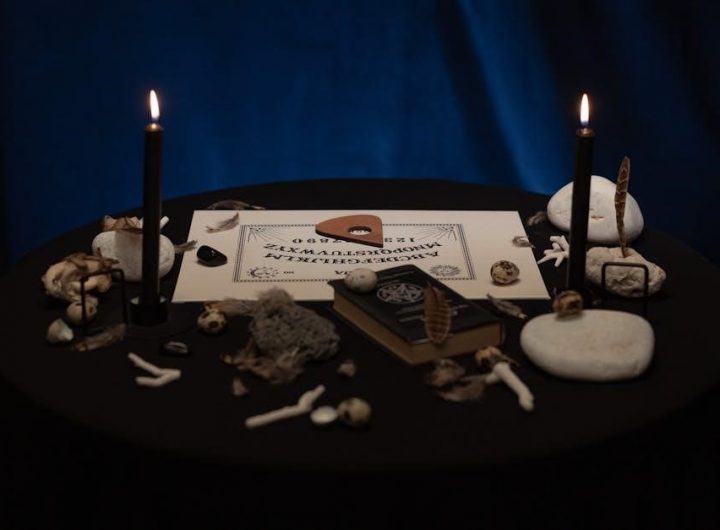 medium sudoku printable pdf
medium sudoku printable pdf  lifebreath digital wall control manual
lifebreath digital wall control manual